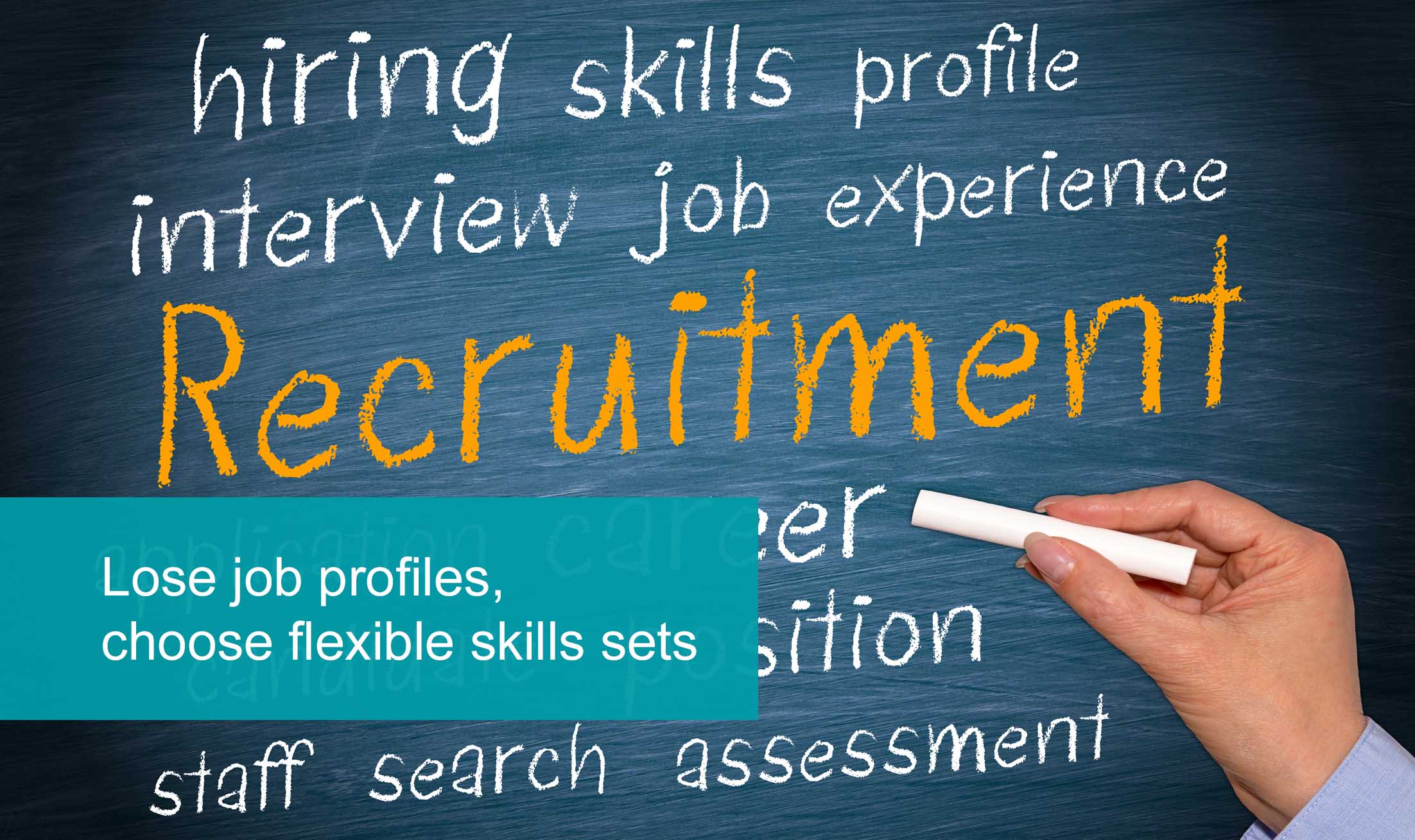Only a couple of decades ago, a job was clearly defined, both in terms of expectations and the skill set that was required to fulfil the role. In recent years, technology and accelerating innovation have led to changes that require a more flexible approach to the way we work and more specifically to employment. This new approach calls for a less rigid structure, as change and changing needs are everywhere.
Organisations are often confronted with scarcity, forcing them to create jobs that fit an employee and are aligned specifically with their needs and capabilities. In other situations the pace of change in an organisation requires the workforce to adjust, cope or maybe even ride out the storm.
On top of this, many organisations blur the boundaries between jobs and skill set even further. They increasingly use gig work and a contingent workforce to keep their workforce aligned with continuously changing needs.
This approach sees teams being created per project, with the necessary skill sets and capabilities to complete that project. In that case a team is put together not based on jobs, but on the skill sets of the people of that team. This fluid approach means that an employee could be part of a team because of a particular skill. Once the project is completed, that individual moves on or is placed in a new team based on their expertise and experience.
Thus the organisation’s collective capabilities are used more effectively. It also
allows employees a level of flexibility and change that prevents stagnation and delivers more varied work experiences. Something that many employees from the more recent generations are seeking. It’s no surprise that the number of highly capable, experienced and effective contingent workforces is increasing. They are of growing importance in today’s business.
However, many of the processes and philosophies that today’s HR is founded on, were designed in the last century when jobs had a rigid structure. We need to start thinking about how HR handles these major organisational changes. As long as HR is still focused on defined job criteria, from recruitment to work management, they are not supporting the current paradigm shift in employment we are experiencing.
A lot of the HR activities today still involve defining roles and choosing individuals. E.g. recruitment of a defined skill set for a single position, assessments based on performance in a defined set of criteria, a career path that is set out with a predefined career mapping process to aid succession planning within the organisation.
As an example, think about something simple like an organisation chart. If there are no fixed positions, including team leaders, with teams not even existing outside of specific projects, even that becomes impossible to create. When none of those fixed positions exist, then how do HR fulfill their role in this new world of employment?
Changes in thinking and processes are needed. You’re not only looking for flexible skills in your new personnel, HR must also provide agile support that reflects the flexibility of the today’s work environment today; fast paced and digitally powered.
So, HR for the modern workplace must be the 2020-2023 focus. Because that’s what organisations require today.
 About the author
About the author
Eugene van Berkel is Managing Partner at TalentIn. With his expertise he helps organisations build and execute their workforce strategy, making sure that what is designed can be implemented.
TalentIn has extensive national and international experience in developing and improving strategies for the recruitment of your permanent and temporary staff. We know how these programmes can be designed and implemented successfully. We advise, but can also provide practical support. Are you interested? Please contact us for an appointment without obligation via www.talentin.eu, info@talentin.eu or +31 10 307 54 22





